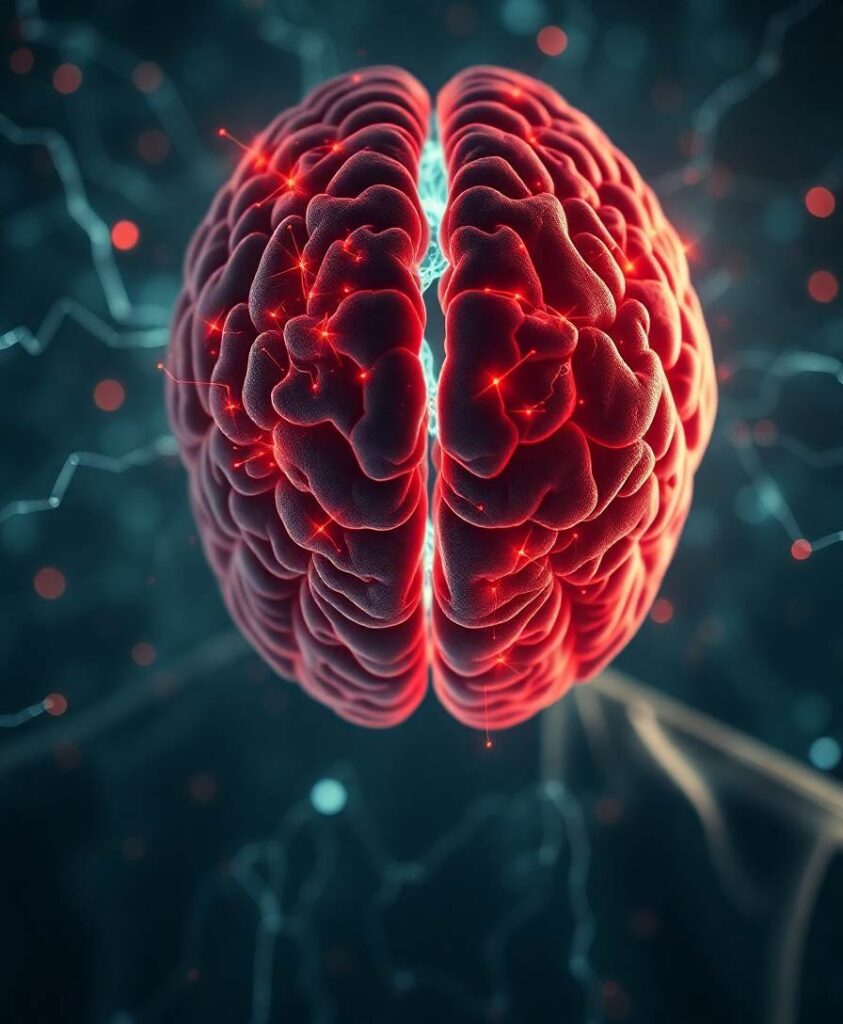Depression increases the risk of progression from mild cognitive impairment (MCI) to dementia, where impaired emotion regulation is a core symptom of depression. However, the neural mechanisms underlying the decreased emotion regulation in individuals with MCI combined with depressive symptoms are not precise. We assessed the behavioral performance by emotion regulation tasks and recorded event-related electroencephalography (EEG) signals related to emotion regulation tasks simultaneously. EEG analysis, including event-related potential (ERP), event-related spectral perturbation (ERSP), functional connectivity and graph theory, was used to compare the difference between MCI individuals and MCI depressed individuals in behavioral performance, the late positive potential (LPP) amplitudes, neural oscillations and brain networks during the processing of emotional stimuli. We found that MCI depressed individuals have negative preferences and are prone to allocate more attentional resources to negative stimuli. Results suggested that theta and alpha oscillations activity is increased, and gamma oscillations activity is decreased during negative stimulus processing in MCI depressed individuals, thus indicating that the decreased emotion regulation in MCI depressed individuals may be associated with enhanced low-frequency and decreased high-frequency oscillations activity. Functional connectivity analysis revealed a decrease in functional connectivity in the left cerebral hemisphere of the alpha band and an increase in functional connectivity in the right cerebral hemisphere of the alpha band in MCI depressed individuals. Graph theory analysis suggested that global network metrics, including clustering coefficients and disassortative, decreased, while nodal and modular network metrics regarding local nodal efficiency, degree centrality, and betweenness centrality were significantly increased in the frontal lobe and decreased in the parieto-occipital lobe, which was observed in the alpha band, further suggesting that abnormal alpha band network connectivity may be a potential marker of depressive symptoms. Correlational analyses showed that depressive symptoms were closely related to emotion regulation, power oscillations and functional connectivity. In conclusion, the dominant processing of negative stimuli, the increased low-frequency oscillations activity and decreased high-frequency activity, so as the decrease in top-down information processing in the frontal parieto-occipital lobe, results in the abnormality of alpha-band network connectivity. It is suggested that these factors, in turn, contribute to the declined ability of MCI depressed individuals in emotion regulation.


